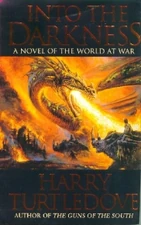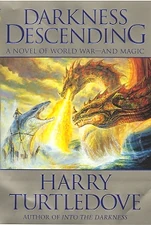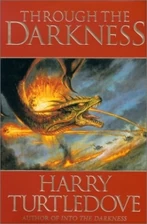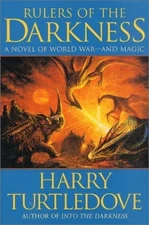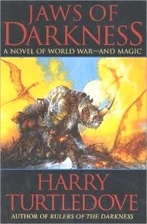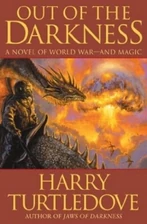Forthweg was a kingdom in northern Derlavai with its capital at Eoforwic. It was bordered to the east by Algarve and to the west by Unkerlant. When the Derlavain War broke out, it was ruled by Penda.
History
For most of its history Forthweg was subjected to one or more of its neighbors. In ancient times it was part of the Kaunian Empire, and in the centuries prior to the Six Years' War Forthwegian territory was divided between Algarve and Unkerlant. Four centuries before the Derlavaian War, however, Forthweg was not only independent but strong enough to make inroads into both Algarve and Unkerlant. During this period Forthweg reached the height of its power under King Plegmund the Great.
After the Six Years' War, the Kingdom of Forthweg was reconstituted when its Algarvian half was liberated to punish its defeated overlord. Soon after Forthweg's western half seceded from Unkerlant, taking advantage of the chaos gripping that kingdom during the Twinkings War.
Derlavaian War
When Algarve annexed the Duchy of Bari following the death of Alardo, Duke of Bari Forthweg honored its liberators and allies by immediately declaring war against Algarve, along with Valmiera, Jelgava, and Sibiu. Forthweg's army invaded northwestern Algarve but with its outdated force composition and tactics was soon driven back across the border. When Unkerlant suddenly invaded it from the west, Forthweg was once again crushed and divided between its two traditional enemies. King Penda fled to Yanina, where he remained in 'protective custody' until rescued the Lagoan mage Fernao.
For the next two years Forthweg languished under foreign occupation. As a general rule, ethnic Forthwegians fared worse under Unkerlant while the Kaunian minority suffered more under Algarve. This state of affairs ended when Algarve launched its surprise invasion of Unkerlant, and all of prewar Forthweg was soon occupied solely by Algarve.
Forthweg remained largely quiescent while the war raged within Unkerlant. Kaunians were rounded up in ever-increasing numbers to be sacrificed by Algarvian mages with the majority of Forthwegians either acquiescent or supportive of the genocide. Algarve was also able to raise a Forthwegian unit - Plegmund's Brigade - though its members were primarily criminals and outcasts scorned by other Forthwegians. Only in Eoforwic was there any significant resistance to the Algarvians, as the capital's Kaunian and Forthwegian inhabitants rioted together against the occupiers.
When Algarve was eventually driven back into Forthweg by Unkerlant, the Forthwegian underground in Eoforwic staged a rebellion formented by Pybba the pottery magnate, hoping to reestablish Forthweg as an independent kingdom before Unkerlant's armies overran the country. Instead the revolt was crushed by Algarve, with Unkerlant's tacit consent, and Forthweg was occupied entirely by Unkerlant.
However instead of destroying Forthwegian independence outright, as it and Algarve had done early in the war, Unkerlant instead placed a compliant Forthwegian, Beornwulf I, upon the throne. While Beornwulf and his kingdom were subservient to Unkerlant - for instance, young Forthwegian men were drafted into Unkerlant's army during the final days of the war - Forthweg had still regained a measure of independence.
People and Society
Forthwegians were ethnic kin to Unkerlanters, both peoples tending towards stocky bodies with dark hair, big noses and swarthy skin. The main difference between the two peoples was the full beards sported by Forthwegian men.
About one-tenth of Forthweg's prewar population were Kaunians, remnants of the ancient Kaunian Empire. Relations between ethnic Forthwegians and the 'blonds' varied, but generally ranged from distaste to outright hatred on both sides. Only in the capital city of Eoforwic was there any large-scale measure of harmony between the two races.
Mushrooms were a favorite staple of both Forthwegian and Kaunian diets. Forthwegian music favored the use of bagpipes and drums.
Literary Comment
The language and names of Forthweg are derived from Old English/Anglo-Saxon.
Forthweg's role in the series closely resembles that of Poland in World War II, with a notable difference being that Forthweg declares war upon Algarve instead of being invaded itself, unlike Germany invading Poland in 1939. Forthweg's Kaunian minority and its persecution is analogous to the real-life fate of Poland's Jewish population.
| |||||||||||||||||||
